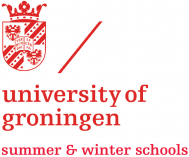9 July 2024
on course website
Developing Across Differences: Reducing Cross-Cultural Tensions In Groups
This two-day, techniques-focused course is designed for those seeking to lower tensions and improve cooperation and performance when working with diverse (national culture, age, gender, etc) stakeholders — especially in team or group settings.
Using a combination of interactive and reflective approaches, you’ll both participate in sample activities of the methods shared, and then have meta-level discussions about the processes and pedagogies behind them in order to be able to adjust and apply them in your own work.
*By request, this course has been extended to be a 2-day workshop so that participants have more practice and feedback time on the techniques shared.*
Why Attend?
Whether in the workplace, classroom, community or elsewhere, establishing conditions for effective group dynamics is a key responsibility for many of us, yet we may neglect to consider this crucial aspect of our roles.
And, identity differences among would-be team members may seem to add challenges rather than benefits when we think about building a sense of shared collegiality and collaboration especially across cultures.
Participants in this course will learn how to reduce cultural tensions and more explicitly establish success-enabling space(s) in which groups or teams can operate by acknowledging and intentionally designing for the diversity - whether apparent or “hidden” - among them, and how to do so using disarming, creative and “serious play” approaches.
Emphasis will be placed on how to dismantle miscommunications and/or tensions and conduct such group-forming when working within short timeframes.
Course leader
Prof. Annette Gisevius
Sherifa M.B.E. Fayez
Target group
Level requirements
The DAD is for multipliers who help individuals, organizations and societies better recognize, appreciate and use differences as a way of better communicating, working and thriving together.
These are (in-house and external) trainers, educators, consultants, coaches, researchers, scholars, facilitators, HR staff, advanced-level (MA+) students, and professional development specialists with 5+ years of experience/study in the greater Differences field. Contact the organisers at ic@rug.nl or info@iddifferences.org for consultation about appropriateness and eligibility.
It is expected that the participants have a sufficient command of the English language to actively participate in the discussions and to present their own work in English.
Participant profile
This course is for you if are a consultant/trainer/multiplier/educator who:
● Supports clients with increasing levels of (hidden) diversity yet have not intentionally designed team-building approaches that acknowledge and realize the benefits of intergroup differences;
● Wishes to incorporate nontraditional (playful, creative, innovative) methods as a means of reducing cultural miscommunications into your work with learners/clients;
● Works with teams that may need to form or shift rapidly yet perform at high levels
You should already have at least a preliminary understanding of and experience with —either through your own work or participation in ‘training for trainers’ type programs— team-building, training and (adult) learning best practices.\
Contact the organisers at ic@rug.nl or info@iddifferences.org if you have questions about the suitability of this course for your circumstances.
Course aim
In this course, you will learn how to help yourself—and those you work with—so that you/they can better:
1. Understand key underlying principles that allow for more effective team-building for heterogeneous groups (national cultures, ages, faiths, professional roles, backgrounds…).
2. Create a highly engaged, constructive team atmosphere and spirit as a base for trustful collaboration when working with groups with diverse members/
3. Adapt team-building activities to embrace team-member differences/diversity as a means of fostering inclusion, belonging and reducing cross-cultural tensions.
4. Experience very interactive, creative, and fun (as appropriate) learning techniques and approaches.
Credits info
Workload
12 hours of in-class learning and active participation using experiential methods.
Upon successful completion of the programme, the Summer School offers a Certificate of Attendance that mentions the workload of 12 hours (28 hours corresponds to 1 ECTS). Students can apply for recognition of these credits to the relevant authorities in their home institutions, therefore the final decision on awarding credits is at the discretion of their home institutions. We will be happy to provide any necessary information that might be requested in addition to the certificate of attendance.
Fee info
EUR 995: includes course and materials, optional evening programming
Register for this courseon course website

